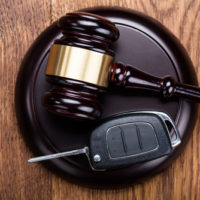The Five Types of Driving Impairment

In the United States, driver error causes about 96 percent of all car wrecks. Most of these incidents are not accidents. People accidentally leave the lights on. They do not accidentally drive while fatigued or under the influence of drugs.
Since most impairment-related crashes are not accidents, a Port St. Lucie personal injury attorney can usually obtain substantial compensation in these cases. This compensation normally includes money for economic losses, such as medical bills, and noneconomic losses, such as pain and suffering. Additional punitive damages might be available as well, in some extreme situations.
Alcohol
This substance impairs motor skills and judgement ability. People who drink cannot react as quickly and have an unnatural sense of euphoria. As a result, it is very dangerous to drink and drive. Furthermore, most drivers are impaired after just one drink.
Victims of alcohol-related crashes usually have two legal options. Alcohol impairment is arguably a breach of the duty of care. Evidence of impairment includes:
- Bloodshot eyes,
- Slurred speech, and
- Odor of alcohol.
In many cases, the negligence per se shortcut is available. Tortfeasors (negligent drivers) are liable for damages as a matter of law if they violated the DUI law. There is no need to prove a breach of duty.
This same circumstantial evidence often establishes third-party liability in alcohol-related wrecks. Florida has a dram shop law which holds restaurants, grocery stores, and other commercial alcohol providers liable for damages in some cases.
Fatigue
Scientifically, alcohol and fatigue affect the brain in roughly the same way. Driving after eighteen consecutive hours without sleep, which is like a long day at the office or a long road trip, is the equivalent of driving with a .05 BAC level.
These two conditions have something else in common. There is no quick fix for alcohol impairment or fatigue. Time is the only cure for alcohol impairment, and sleep is the only cure for fatigue. Shortcuts, like drinking coffee, are ineffective for more than a few minutes. Drowsy driving claims always involve ordinary negligence. It is usually not illegal to drive while drowsy, and there is no Breathalyzer or other test for fatigue.
Drugs
Likewise, victim/plaintiffs must normally use circumstantial evidence to establish drug impairment. There is no Breathalyzer test for marijuana or other drugs, at least not yet. Circumstantial evidence of drug impairment includes glassy eyes, open medicine containers in the vehicle, and current prescriptions.
In many jurisdictions, there are more drugged drivers than drunk drivers. Primarily, that’s because drug impairment can come from many different sources, including:
- Heroin, cocaine, and other street drugs,
- Oxycontin, Percocet, and other prescription painkillers, or
- NyQuil, Sominex, and certain over-the-counter drugs.
Marijuana impairment is complex. The jury is still out (pardon the pun) as to whether marijuana impairs drivers. However, it is illegal to drive under the influence of marijuana, so the negligence per se shortcut often applies in these situations.
Distraction
Hand-held cell phones cause a significant number of distracted driving crashes. Hands-free cell phones might be even worse, from an impairment standpoint. These gadgets are visually and cognitively distracting. Users take their eyes off the road and their minds off driving. Furthermore, many hands-free device users have a false sense of security, so they take unnecessary risks.
Florida’s new hands-free phone law sometimes applies in these situations. However, this law has limited applicability. And, if the tortfeasor violated a non-penal safety law, negligence per se is only a presumption of negligence.
Medical Condition
Thousands of Floridians have chronic medical conditions which could cause a sudden loss of consciousness. Some examples include:
- Heart disease,
- Diabetes, and
- Epilepsy.
Once again, either ordinary negligence or negligence per se could apply in these situations. Driving with a serious medical condition clearly violates the duty of reasonable care. Circumstantial evidence on this point includes erratic driving prior to the crash and a medical diagnosis of a chronic condition. Additionally, the state normally suspends drivers’ licenses in these situations. Driving without a valid license is generally a misdemeanor.
Contact a Tenacious Lawyer
Impairment-related crashes often cause serious injuries. For a free consultation with an experienced personal injury attorney in Port St. Lucie, contact Eighmie Law Firm, P.A. Attorneys can connect victims with doctors, even if they have no money or insurance.
Resource:
digitaltrends.com/cars/2016-nhtsa-fatality-report/


